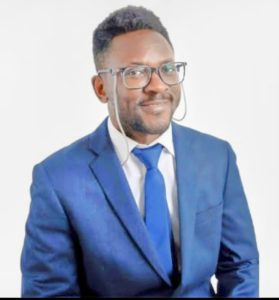

By Stephen Adeleye.

Dr. Kennedy Oberhiri Obohwemu.
When Dr. Kennedy Oberhiri Obohwemu landed in the UK from Nigeria, he never imagined his first year abroad would become a personal mental health crucible.
Arriving just before the onset of the COVID-19 pandemic, he spent his first 12 months under three national lockdowns, far from home, alone, unemployed, and struggling to meet mounting academic demands.
It was the hardest year of his life as there were no friends, no family, and no safety net. He broke down emotionally.
But somewhere in the quiet moments of that emotional collapse, Dr. Obohwemu began to notice the one thing that helped him stay afloat—his ability to comfort himself.
Now, that experience has blossomed into something extraordinary.
This month of May, Dr. Obohwemu published his second scientific breakthrough in Mental Health & Prevention, a peer-reviewed international journal.
His work introduces the Self-Comforting Attitude Theory (SCAT) and the Self-Comforting Attitude Scale (SCAS)—a framework and tool that explore how people perceive and value their own coping behaviours. It joins his earlier publication of the Self-Comforting and Coping Theory (SCCT) and Scale (SCCS), creating the world’s first comprehensive Self-Comforting Framework.
Speaking to our Correspondent on his groundbreaking Research, Dr Obohwemu said: “In simple terms, my research answers a powerful question: What helps us survive emotionally—and how do we feel about those behaviours when no one else is around to validate them?
“Our inner attitudes toward comfort matter,” he says. “Some people feel guilty or weak for taking time to emotionally self-soothe. But when we shift that mindset, we make space for real healing.”
His findings are already resonating with therapists, wellness coaches, and educators.
The framework helps people better understand both what they do to soothe themselves—like deep breathing, journaling, or self-talk—and how they feel about doing those things. That mindset, he explains, can be the difference between healing and avoidance.
Wellness professionals are calling his research a refreshing addition to the self-care conversation. At a time when burnout, anxiety, and emotional fatigue are rising globally, the Self-Comforting Framework offers a science-backed way to connect with ourselves more gently and intentionally.
What makes Dr. Obohwemu’s work so compelling is that it comes not just from data, but from deep personal experience. His story is proof that even in isolation and adversity, inner resilience can lead to discovery—not only for ourselves, but for others.
For anyone who has ever whispered “you’ll be okay” to themselves in the dark, this research validates the power of that moment.
It says: what you did to stay standing matters. And now, science agrees.


